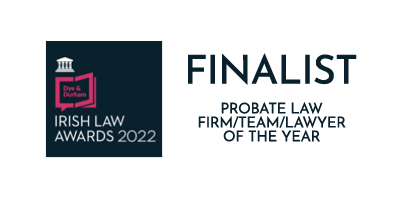Your questions answered: ‘I am a widow and want to leave my house to charity’
Question: I’m a widow and I’m writing my will. My main asset is my home and the mortgage is paid off on it. I don’t have any children or nephews or nieces, so I’ve been thinking about leaving the house to an animal welfare charity that’s close to my heart. Would the charity have to pay tax if it received my house?
Breda, Co Clare
Answer: To ensure there are no tax implications for the charity, I would offer two suggestions. Firstly, check that the animal welfare organisation is a registered charity, namely that it has been granted charitable status by the Charities Regulatory Authority. You could check this on charitiesregulator.ie. Secondly, you should determine whether Revenue has granted charitable tax exemption status to the organisation. You can check this online, at revenue.ie, submit a query via the MyEnquiries facility to Revenue’s Charities and Sports Exemptions Unit, or call (01) 738 3688. If your chosen animal welfare organisation is named on the list of organisations deemed to be exempt from tax because of their charitable status, you can leave the house to the charity without the organisation having to pay any tax.
When you’re drawing up your will, it’s important that you describe the charity properly, including its name, address and charity number. You should also consider naming an alternative charity in your will in case anything happens to your chosen charity.
As you’re considering a very generous bequest, you might want to set out in the will – or in an accompanying letter — how you’d like your bequest to be used, such as to fund new equipment or veterinary bills. Consider whether you would like your house to be sold and then have net proceeds of the sale left to the charity or if you’d prefer to give the property directly to the charity.
If the mortgage is paid off on your house, do you have the deeds or are they still with your lender? It might be best to leave the deeds along with your will with your solicitor.
You may wish to leave a token bequest to the executor of your will, in appreciation of the work they’ll be putting in when attending to the administration of the will.
‘I lived with ex-partner for 23 years. Am I entitled to our shared house when he dies?’
Question: I was living with my partner for 23 years and we had three children together. The relationship broke down five years ago and I moved out of the house. He’s 20 years older than me and while he was separated when we met, he never got a judicial separation or a divorce. I’m in my 50s now and renting so I asked my ex-partner to leave me the house in his will as I had contributed to the mortgage. How can I make sure he does this and do I have any inheritance rights?
Carol, Co Waterford
Answer: It sounds like the house is held in the sole name of your ex-partner. If you and he were named as joint tenants, then the house would automatically pass onto you when he dies. If the house is in your former partner’s sole name, I’d advise speaking to a family law solicitor about any possible entitlement or agreement that could be reached during your lifetimes. While your ex-partner is the legal owner of the house, you have made financial contributions and may have a beneficial interest in the house.
Regarding your inheritance rights, you would be a ‘qualified cohabitant’ under section 172 of the Civil Partnership and Certain Rights and Obligations of Cohabitants Act 2010. The difficulty is that a qualified cohabitant cannot apply for an order under section 194 of the act if the relationship ended two years or more before the death of the deceased (with some exceptions). However, if your ex-partner promised during his lifetime to leave the house to you, you may have a claim based on promissory or proprietary estoppel.
You can ask your former partner to leave you the house in his will, but there’s no onus on him to do so. If he were to leave the house to you, you’d be liable for a significant tax bill: you would be classified as a group C beneficiary, so you could only inherit €16,250 tax-free and would have to pay tax at 33pc on the remainder.
On the face of it, because your ex-partner did not get a judicial separation or divorce, his wife is still a spouse for inheritance purposes and could have rights under the rules of intestacy or a legal right share. But section 120 of the Succession Act is important – did the wife desert your ex-partner and is she excluded from the estate?

















